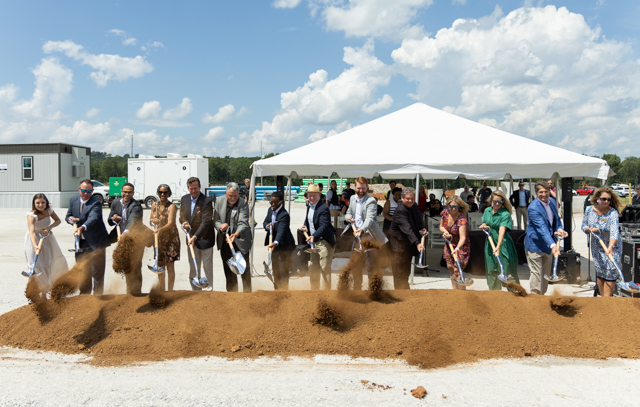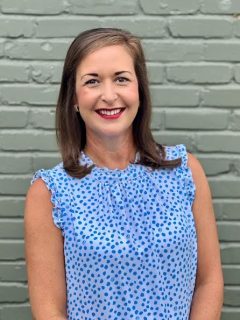Refugee placement in Glasgow draws concerns
Published 6:00 am Friday, June 28, 2024

- Executive Director of Refuge BG Daniel Tarnagda speaks to 178 newly naturalized U.S. citizens and their families Sept. 14 during the City of Bowling Green’s seventh annual Reception for New Americans at the Sloan Convention Center.
A plan to bring Honduran refugees to Glasgow sparked concerns from the city’s residents this week, even getting the attention of State Rep. Steve Riley, but some city leaders and a representative of the Refuge Bowling Green nonprofit that helps refugees acclimate to their new home say the concerns are misplaced.
Several Glasgow residents turned out for Monday’s Glasgow City Council meeting to hear from Refuge BG and express their fears about bringing 30 refugees (adults and children) to the mid-sized (population 15,015) Barren County city.
Trending
“People are just wanting to know more information,” said Freddie Norris, a city council member. “With what is going on at the national level, a lot of people are scared and don’t understand the word refugee.”
Matthew Stevens, a Glasgow Realtor and a Refuge BG board member, agreed that the terms used to describe international residents can lead to confusion.
“This (U.S. presidential) administration’s handling of illegal immigration has caused concerns,” Stevens said. “I’d probably agree that those concerns are substantive.”
Stevens, though, said the Hondurans looking to locate in Glasgow are neither immigrants who go through the traditional legal process nor illegal immigrants who try to circumvent the law.
“These are law-abiding people who have applied to come here because of threats to their safety or other reasons,” said Stevens, who attended Monday’s meeting along with Refuge BG Executive Director Daniel Tarnagda. “It’s not fair to lump them together” with the others.
At a time when the number of unauthorized immigrants in the United States is estimated at more than 11 million and growing, talk of bringing in refugees can raise questions.
Trending
Responding to those questions from Glasgow residents, Riley weighed in on the Honduran issue by releasing this statement on Tuesday:
“Many are understandably concerned with the lack of information available about plans to re-locate Honduran refugees to our community. Last night’s presentation at the city council was the first step in providing information for the public, but the Office of Refugee Resettlement and the Kentucky Office for Refugees must continue to make the public aware of plans to move these individuals into our community.”
Riley went on to say that the concerns of residents “indicates a very real lack of trust in the president’s handling of immigration issues, particularly his administration’s abject failure in dealing with illegal immigration. Local residents want to make sure our community can support this re-location and that they are aware of what impact it will have on our housing shortage, local workforce and schools.”
Refuge BG has worked since its founding in 2018 to help refugees in Bowling Green find jobs, transportation and housing. Stevens expects that to continue with the Honduran refugees, who he said are several months away from settling in Glasgow.
“These 30 individuals are Latino-based,” he said. “Glasgow already has a Latino community, and many of them are employed to work with tobacco or in local factories. It’s not like we’re introducing a new culture.”
Stevens said the refugees could even provide an answer to this region’s workforce needs.
“Typically, they (refugees) take jobs that no one else wants,” he said. “Employers left and right are having trouble finding workers.”
Such assurances didn’t assuage the fears of some of those at Monday’s meeting, including City Councilman Marlin Witcher.
“I have concerns, and people I talk to feel about the same way,” Witcher said. “We need to take care of our own people before we take care of foreigners.”
Another city council member, Patrick Gaunce, takes a different view.
“I have no problem with them coming,” Gaunce said. “I think people need to understand that there’s a difference between refugees and illegal aliens.
“They (refugees) have been vetted, and it’s only 30 total kids and adults. It’s not costing Glasgow and Barren County any money. But, in this polarized world we live in, everybody has to take a side.”






